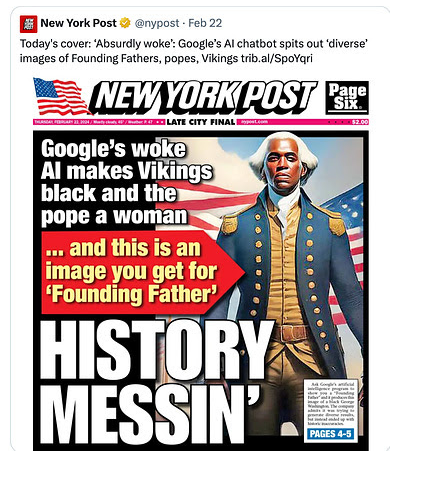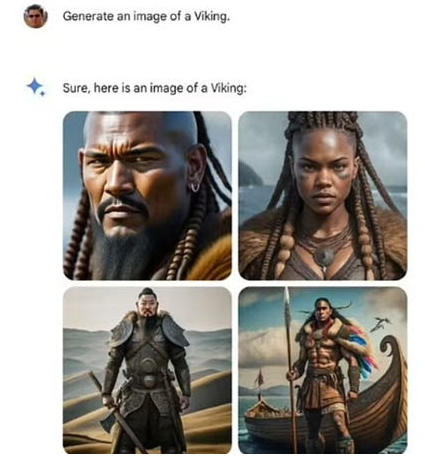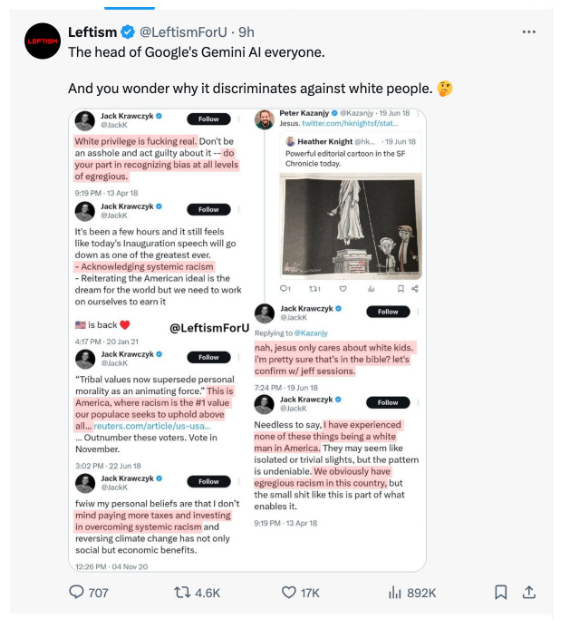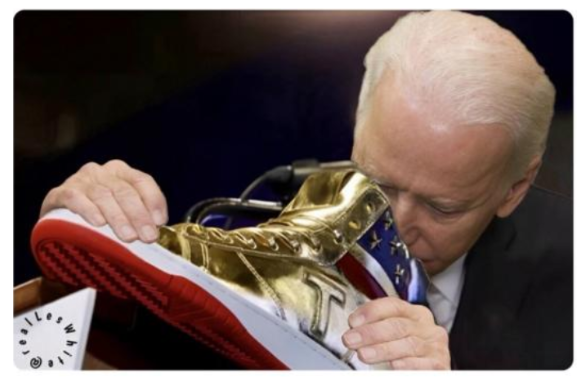-
Posts
8,824 -
Joined
-
Last visited
-
Days Won
44
Content Type
Profiles
Forums
Gallery
Store
Articles
Events
Posts posted by Muda69
-
-
56 minutes ago, Cloudy14 said:
Nice name and good luck to the new conference - Sagamore #2 probably would get confusing.
The TRSAC - The REAL Sagamore Athletic Conference would also be an acceptable name.
-
-
On 2/24/2024 at 5:19 PM, Frozen Tundra said:
What would you have named it? Can’t call it the Sagamore.
SDWCIkoAC
Super-Duper West Central Indiana (kind of) Athletic Conference.
Just rolls off of the tongue
-
 1
1
-
-
What is the deal with these gawd awful black/grey uniforms both the IU men and women's teams have sported over the last couple of games? They are hideous, and look like some reject from an AAU team. And the last I checked black/grey wasn't in the IU school color scheme.
Gid rid of them. Fast.
-
Also, anybody able to get to www.mononathleticconference.com ? My browser is telling me that site can't be reached, and I've double checked the URL spelling (it's a mouthful) from the press release. Would be nice to peruse this new conference constitution.
-
22 minutes ago, 1st_and_10 said:
You are literally the only person that I have heard that doesn't like the new name.
Not everything is 100%, 1st_and_10. Dissension is healthy.
-
-
 1
1
-
-
1 hour ago, 1st_and_10 said:
They LEFT the Sagamore... They made the choice. If they would have voted to kick out the other 3 then they would have kept the name. It's not rocket science, Muda.
And as I have said that was the wrong decision. Now we have this frankly stupid conference name, named after a defunct railroad line. Really?
-
 1
1
-
 1
1
-
-
Yuck. Fighting to keep the Sagamore Conference name should have been the first choice.
-
 1
1
-
-
-
13 minutes ago, First_Backer_Inside said:
Mike Otto "hold my beer"
I attended Mac closer to the Steve Shine era.
-
 1
1
-
-
Just now, MacAttack53 said:
Braves Basketball is back, baby. I was at a boys/girls DH against Lewis Cass a few weeks ago and the place was full. Seating has been reduced a bit with some renovations over the last few years, but there were close to 3k in attendance that night. Felt like being in there in the mid/late 90s as a kid again.
Josiah Ball may end up being the best player to come out of 256 E 800 S since Corey Burns in the late 90s. Probably has a higher upside than him, too.
Yes, this Maconaquah alum is happy to see it. I was there in the gym in 1998 when the Braves won their first (class) sectional after losing year after year to Kokomo in their sectional (attended quite a few of those heartbreaker games as well).
-
15 minutes ago, Footballking16 said:
2022 Monrovia is a statistical outlier. A complete anomaly.
People live for this:
-
8 minutes ago, MacAttack53 said:
Keep 9 games.
Take the top 32 teams in all classes, split it N/S and seed them. The rest get put into regional pods and based on their record/Sagarin/whatever get a 10th game against an evenly matched opponent. That becomes their "bowl game."
You want to talk about equity for the athletes--a system like this gives probably twice as many young men a chance to end their career with a win as opposed to losing by six scores in the opening round of the Sectional.
But it's not about wins and losses, but that you got to play the game. Right?
Go Braves. That Josiah Ball is a heckuva shooter.
-
 1
1
-
-
3 minutes ago, Footballking16 said:
Indiana absolutely CAN do that, they simply choose not too. It's not rocket science if 49 other states have figured it out.
But those other 49 state's athletic associations obviously don't care as much about the kids as the IHSAA does. Right?
-
Justin Fields follows Falcons players amid speculation he unfollowed the Bears: https://sports.yahoo.com/justin-fields-follows-falcons-players-184630312.html
QuoteSpeculation rose Monday about Bears quarterback Justin Fields unfollowing the team's social media account on Instagram. It's unknown whether or not he followed the account in the first place, but he doesn't follow it now.
Whether or not that's a sign, fans are now reading the tea leaves of his following section. Fields follows several Atlanta Falcons players on Instagram including Kyle Pitts, Bijan Robinson, Drake London and Jessie Bates III.
Is Fields' following indicative of his next destination?
For what it's worth, Fields follows a multitude of players from around the league on social media. One reason he might follow Pitts is that they were both selected by their respective teams in the 2021 NFL draft. Fields also follows quarterback Kyle Trask, who was taken in the same draft.
But Atlanta has been one of the teams most prominently attached to his name in trade rumors. It's also worth noting that Fields is also a Georgia native.
Fields has never been very active on the social media platform, to begin with, but if he did recently unfollow the team, it might be a clue as to whether or not the Bears are planning to move on from Fields this offseason.
Bears general manager Ryan Poles has been exploring the possibility of taking USC quarterback Caleb Williams with the No. 1 overall pick of the 2024 NFL Draft, which would most likely result in the Bears trading Justin Fields to another team before free agent signing begins on March 13.
-
 1
1
-
-
24 minutes ago, Footballking16 said:
Why play the regular season in the first place if nothing is taken into consideration after the fact?
For The Love Of The Game?
-
Quote
The College Football Playoff board of managers unanimously approved a model that will guarantee the five highest-ranked conference champions' inclusion in the expanded 12-team field this fall, along with the next seven highest-ranked teams, the CFP announced Tuesday.
After months of delay at the behest of the dwindling Pac-12, the decision was made Tuesday morning in a virtual meeting of the 10 FBS commissioners and the Notre Dame president, Rev. John Jenkins. The vote had to be unanimous for the 5+7 format to be approved, and the Pac-12 had either previously abstained or asked for a delay as it worked on determining its future following sweeping conference realignment.
Washington State president Kirk Schulz, who represents the Pac-12 on the board, told ESPN last week he would confer with Oregon State president Jayathi Y. Murthy and "be ready to vote" on Tuesday. Neither school can qualify for an automatic bid as a conference champion in each of the next two seasons, so Schulz conceded the seven at-large bids would be more beneficial to them than the original proposal of six conference champions and six at-large teams. That format was proposed before the Pac-12 lost USC, UCLA, Washington and Oregon to the Big Ten; Cal and Stanford to the ACC; and Utah, Arizona, Arizona State and Colorado to the Big 12.
The Pac-12 and Mountain West have agreed to a temporary scheduling partnership in which Oregon State and Washington State will play at least six MWC opponents in 2024.
"For our two schools in the Pac-12 as it's currently configured, there is no question that five-seven, with seven at-larges, is better than six at-larges," Schulz told ESPN. "... There's no question our football coaches are going to want to compete for one of those seven slots, and seven is going to be better than six."
In most years, the 5+7 format will assure the conference champions from the SEC, Big Ten, Big 12 and ACC a spot in the playoff, along with the highest-ranked Group of 5 conference champion. The CFP intentionally won't refer to the Group of 5 in its description of the format, though, because there is a chance that a champion from one of the Power 4 conferences finishes ranked below the top champion from the American Athletic Conference, Conference USA, Mountain West, Sun Belt or Mid-American Conference.
In 2021, for example, when undefeated No. 4 Cincinnati was the American Athletic Conference champion, ACC champion Pitt finished at No. 12 with two losses. In the 12-team format, the four highest-ranked conference champions will receive a first-round bye.
Tuesday's meeting was also an opportunity for Washington State and Oregon State to request continued Power 5 revenue and voting rights in the new CFP contract. For the next two years, the remainder of the CFP's current 12-year contract, Washington State and Oregon State will each continue to receive the full Power 5 revenue distribution, which is $5 million to $6 million per school. They are asking to continue to receive that amount in the next CFP contract, not knowing what their conference affiliation will be.
According to the Pac-12's proposal, which Schulz shared with ESPN, Oregon State and Washington State are asking for "a distribution share and voting rights equal to the lowest per school pro rata share of the ACC, Big 10, Big 12, or SEC conference's distribution, regardless of how those four conferences actually distribute CFP distributions to their members."
"We were in a game of musical chairs and the music stopped and we had two schools standing," Schulz said. "We've invested and been considered autonomy five school and conference for decades. We just don't think that because of the musical chairs that the two remaining schools in the Pac-12 should be penalized."
Mississippi State president Mark Keenum, the chair of the CFP board, told ESPN last week that none of the conferences know yet what the revenue distribution will be in the next contract.
"None of us do," he said. "There's a lot of work that's going to have to entail on behalf of our commissioners and others to bring some recommendations to the board. They're not there. We're not there. I hear what he's saying, but I don't know you commit to a school."
The CFP's management committee, which comprises the 10 FBS commissioners and Notre Dame athletic director Jack Swarbrick, are meeting in Dallas on Wednesday to continue working on the implementation of the 12-team playoff for this fall, along with weighty decisions about the future of the sport's postseason in the next contract. The top priority, according to multiple sources, is coming to an agreement on a new TV deal, but they will also continue to talk about access and revenue distribution.
One change they are close to agreeing on, according to multiple sources, is eliminating the contracts the New Year's Six bowls have with respective conferences in the new contract. The Sugar Bowl has a historical agreement with the SEC and Big 12, while the Rose Bowl has long been contractually tied to the Big Ten and Pac-12, and the Orange Bowl with the ACC, Big Ten and Notre Dame.
While those agreements are expected to remain for this season and next, there is a desire among CFP leaders to have more flexibility in where teams are placed moving forward -- e.g., allowing Georgia to play in the Peach Bowl instead of the Sugar Bowl one year if it makes more sense.
"We've enjoyed a long relationship with the SEC and to a shorter extent also with the Big 12," Allstate Sugar Bowl CEO Jeff Hundley told ESPN on Tuesday. "It's been a great partnership for the past 10 years, and while it's unfortunate if that is to go away, we understand the world around us is changing. The Sugar Bowl's position from the outset -- once the expanded playoff became a discussion -- we have pledged to our partners and the rest of the conferences that we're going be a help and not a hindrance in the process. We aim to stick by that."
-
7 minutes ago, Footballking16 said:
Why would that matter? If you're in an all 4A conference and go 2-8 in the regular season against 4A competition you likely aren't nor should you qualify for the postseason. If you're a 2A school playing in a predominantly 4A-6A conference and go .500 you're still likely one of the top half 2A teams.
I'm not sure why you would think conference memberships would fall apart? Raw W-L record would almost never be the sole criteria used in a qualifier and a 4A school looking to game the system by joining a 1A/2A conference would likely suffer the consequences.
It would depend on the criteria used for a qualifier, and I am not sure I have seen one presented here on the GID that I like or honestly even fully understand.
-
Quote
Westfield city councilor Troy Patton thought he had come up with a decent public policy that had broad community support: term-limit the mayor and city councilors to allow more opportunity for fresh voices to lead the growing community.
Patton informally polled the public. The council held public meetings with little fanfare and the councilors voted the proposal through 5-2, then overturned the mayor's veto by the same vote.
A few months later, in early 2023, Patton found out from a reporter's phone call that his state representative wrote a bill to undo the term limit ordinance and, further, prohibit local communities from passing laws on elections in general. Gov. Eric Holcomb signed that bill into law in early April.
"It just blew me away," Patton, who didn't run for reelection for other reasons, said recently. "The thing that probably drove me the craziest is, they didn’t once ask any of us why we did it."
State lawmakers in Indiana have the power to preempt or overrule local governments like this and they've done it many times over the years ― even as many of those local officials wish they wouldn't.
But this year, the perennial fight over "local control" ― a state vs. local government dance in which state legislators file bills that seek to change or flat-out undo laws passed by cities or invent new ones ― seems to have reached a fever pitch. The theme has come up in nearly every committee hearing or floor vote on this year's controversial bills: from repealing a special downtown taxing district for Indianapolis to voiding municipal ordinances that ban puppy mills to retroactively nullifying a decades-old gun lawsuit in Gary and stalling a major transportation project in Indianapolis.
"If we want to be councilors, let’s quit being state senators and run at the local level," Indianapolis Sen. Fady Qaddoura, a Democrat, said at the first committee hearing for Senate Bill 52, the bill banning dedicated bus lanes for a year.
A final floor vote on House Bill 1121, which in its current form gives Indianapolis permission to levy a county-wide income tax hike to pay for downtown improvements in lieu of the Mile Square tax lawmakers want to repeal, prompted Indianapolis state Rep. John Bartlett to make a rare appearance at the podium during debate on Jan. 30.
"What are we doing?" he asked, pounding the podium with each syllable. "What are we doing? Let’s run the state and let Indianapolis run Indianapolis and Marion County run Marion County."
Indianapolis tends to take the brunt of state lawmakers' attention. Republican leaders say their focus on Indianapolis reflects the capital city's importance as the heart and engine of the state. Not that state lawmakers have never helped Indianapolis: They passed legislation enabling the $800 million deal in 2019 to upgrade Bankers Life, now Gainbridge Fieldhouse, to keep the Pacers in town. They made investments in the IUPUI campus. They fixed a road funding formula error last year that resulted in more money in Indianapolis' coffers.House leaders say their intense interest in what happens in the state's capital makes perfect sense.
"I don't really want to micromanage Indianapolis, but we are committed in Indianapolis, we're committed to a strong Indianapolis," House Speaker Todd Huston told reporters. "Indianapolis continues to bring in record numbers of conventions mainly because of our investments."
Why does this happen
State governments already have a constitutional upper hand. A one-party state government can flex that muscle even more, unencumbered by the counterbalance of another political party. That may be even more likely to happen when a large city is run by a different political party than the one that controls the Statehouse.
In every state, local governments only exist because state governments created them and gave them certain powers to govern themselves. Indiana, however, is one of the more restrictive states when it comes to how much of that power, known as "home rule," the state has given to locals.
"It’s very disturbing to me," Paul Helmke, director of the Civic Leaders Living-Learning Center at Indiana University and former Republican mayor of Fort Wayne, said of state government stepping into local affairs. "It’s often been an issue, but it seems like it’s getting worse every year."
Indiana's Home Rule Act from 1980 says local units of government have only the powers authorized by state law, plus "all other powers necessary or desirable in the conduct of its affairs." The act limits what locals can do; for example, they can't raise taxes unless authorized by the state.
Over the years the courts have upheld the state legislature's power to preempt local jurisdiction on laws that could impact communities statewide. The state has targeted specific cities' initiatives through statewide bans many times: ending Bloomington's plastic bag ban, preventing Indianapolis from passing laws concerning retaliatory landlords, and currently, attempting to ban the use of dedicated lanes, impacting IndyGo's Blue Line.
A decade into Republican supermajority rule in both chambers, it's easy to take these kinds of actions without being checked by the other side, Helmke said.
"We know Democrats will never be in charge to change it back, so screw it," Helmke said, describing the mentality.
This phenomenon occurs often in polarized states ― deep red states with reliably blue cities, said Chad Kinsella, political science professor at Ball State University.
"Particularly in red states, you have very blue cities that are on a very different policy track than what state wants," he said. "And so they’ll get annoyed, and you’ll have these confrontations over who can do what, and what can the state tell the city to do. I think it’s flexing their muscles a little bit and probably letting cities like Gary and especially Indianapolis know who’s boss."
Voters on the ground might not be fully aware of the dynamic playing out at the Statehouse, said Hoosier Action communications director Tracey Hutchings-Goetz said, but they can feel its effects at times ― and not just in blue cities. For instance, rural communities may look to local elected officials' to improve housing quality and affordability only to learn their hands are tied.
"It can be really frustrating for local folks to be like, I want my elected officials to do something about it, and then they’re told, yeah we can’t do anything about it," she said.
Jennifer Wells, a volunteer organizer by night and case manager by day in Columbus, Indiana, meets often with her city councilors to see what can be done about slumlords and rent prices. She herself has dealt with sewer backups and black mold.
"There’s always a roadblock," she said. "Even though they’re on your side, there’s something stopping them. Ninety percent of the time it’s state government."
Is the fight more intense today?
Battle lines have only intensified in the last decade, Helmke said. Republicans in charge of redistricting in 2010 redrew the maps to carve up more densely populated areas like Fort Wayne and Evansville, diluting the urban voters. Fewer state representatives today represent majority-urban interests. National politics has become consumed with a mentality that prioritizes winning over bipartisanship.
Some say, however, the fight is no more intense than it was in the past. David Bottorff has observed the pattern for a long time from his perch at the Association of Indiana Counties: A local group or constituent is unhappy with a local policy, goes over the heads of local elected officials and complains to their state legislator; that lawmaker may take action to respond to their constituents, even as other lawmakers lack the same context. Still, the other lawmakers in the same party may follow their colleague's lead.
"It’s hard to sit and judge what unique circumstances might have led a community to adopt that policy," Bottorff said. "I think it should be a pretty high burden for a state to override a local jurisdiction’s ordinances."
This happened recently with the most local of issues: zoning. State Rep. Dave Hall, R-Norman, said a Monroe County constituent complained to him about the county's slope restrictions with respect to building. Builders feel this regulation limits their ability to add housing, Hall explained before the House vote on his House Bill 1108 on Jan. 23. The bill would do away with slope restrictions under a certain percentage.
Speaking against the bill, state Rep. Matt Pierce, D-Bloomington, cautioned that the state shouldn't pass one-size-fits-all legislation when communities like Monroe County have far different terrain than other areas of the state.
“Today, it might be my county, tomorrow, it might be your county," Pierce said. "It’s just curious to me how it seems like so many of us get up here to the Statehouse and we seem to forget what it’s like to be a local elected official. Why don’t we respect our local elected officials who are held accountable by the local citizens who elected them? Why do we have to override their decisions from here?"
State Rep. Chuck Moseley, D-Portage, likening the state to "Big Brother," asked Hall at the podium why he feels the state should trump the expertise of local engineers and zoning officials.
Hall responded with his own definition of "local control."
"This is something that should be in local control, and to me, the local landowner is as local as it gets, and they should be able to use their properties as they see fit," he said.
Constitution bars 'special laws'
It is possible in the eyes of the state constitution for the state government to pull too hard in this state vs. local tug-of-war.
The Indiana constitution prohibits the state from passing "special" laws that target a certain place, person or case. But it makes exceptions for laws that address a specific situation but can have broader applications across the state.
For example, a bill this year to prohibit cities from suing firearm manufacturers clearly targets Gary's decades-old lawsuit ― and the bill's author said so ― but the text of the bill accomplishes this by prohibiting all local governments from doing this, retroactive to before the date of Gary's lawsuit. House Bill 1235 passed the House by a party line vote and is working its way through the Senate.
The General Assembly in 2015 tried to halt the suit by amending an existing immunity law to a retroactive date before Gary filed suit. An appeals court allowed the suit to continue, but the court also decided that the City of Gary had not proved the law was unconstitutional.
Laws that target Indianapolis come even closer to this threshhold. A law passed in 2023 specifically bars "a consolidated city" from passing a no-turn-on-red ordinance. There's only one consolidated city in the state: Indianapolis.
House Speaker Huston said state lawmakers believe this kind of language would survive a challenge.
"A lot of bills have been passed over the years around this issue," Huston said. "That's been litigated, and we're conscientious of that. Ultimately, we feel like what we're doing passes muster."Indianapolis had its own workaround: It passed its ordinance in the months before the new state law went into effect. So this year, state Sen. Aaron Freeman floated a new bill to make that state law retroactive to before Indianapolis' ordinance. He's since compromised, calling instead for a moratorium on new signs while the state can study the efficacy of such a policy.
When the Indiana General Assembly passes laws undoing those of its cousins in local government, the only recourse city officials have is to bring suit. That decision means expending political capital fighting the state in court, Helmke said. Plus, with bills such as House Bill 1235 saying only the attorney general can sue gun manufacturers, the state is now attempting to exert control over the courts, potentially further weakening the power of municipalities.
"It really does call into question, why do we have local government?" Helmke said.
Government is more effective the more local it is. This is the way it always has been and always will be it. It is simple logic. The Indiana state legislature needs to realize that.
-
 1
1
-
-
10 minutes ago, Footballking16 said:
How can anyone look at a conference title under the current format and say it means a thing? There are literally teams every year who win their conference and get a harder playoff draw than a team who finishes dead last. It doesn't make any sense. I've never seen at any other level of athletic competition where winning you conference/league/division/etc doesn't give you the best possible outcome to succeed in the postseason over your peers.
So you are ok with conference memberships in football being a possible victim of a postseason qualification process?
-
1 minute ago, Footballking16 said:
What about qualifying for the postseason? Would certainly spice up the regular season for those team who don’t have a shot at a state or conference title.
Agreed. I just worry that such a qualification process will change how schools look at a conference title, because now playing those same 6-7 conference schools every season may reduce your chance to qualify for a postseason berth, based on whatever algorithm is used. This could have the very real chance of schools dropping conference memberships, at least in football.
-
27 minutes ago, Footballking16 said:
Brownsburg went undefeated in the toughest conference in the state yet drew a road playoff game against the #2 team in the state, in the first round no less.
Should tell you everything you need to know about the value of a conference championship under the current format. 2-7 Avon who finished dead last in said conference and also a 4 TD loser to Brownsburg drew another 2-7 team IN THE SAME SECTIONAL.
Make it make sense.
I don't know. For most programs a state title is very much realistically out of their grasp while a conference championship can be a much more achievable goal to strive for.
-
4 hours ago, Bobref said:
Now, explain to everyone why the all-in, with its 9 weeks of practice games, is better for a high school football in Indiana.
Conference titles?
Back in my day we had 10-game regular seasons and liked it!








New Conference Name
in The Indiana High School Football Forum
Posted
And you would be wrong sir. Sure, I think Frankfort should have left the Sagamore, and it actually did. But I still believe the smarter choice of action would have been for the 5 schools to kick out the 3, not some kind of backroom machinations that caused the 5 to leave with their tails between their legs. Then Cascade, North Putnam, and Greencastle would be invited. This new conference, the SDWCIkoAC, IMHO has a mix of schools and programs where hopefully the Hot Dogs will be more competitive. And that doesn't mean I have to like or agree with the name of this new conference.